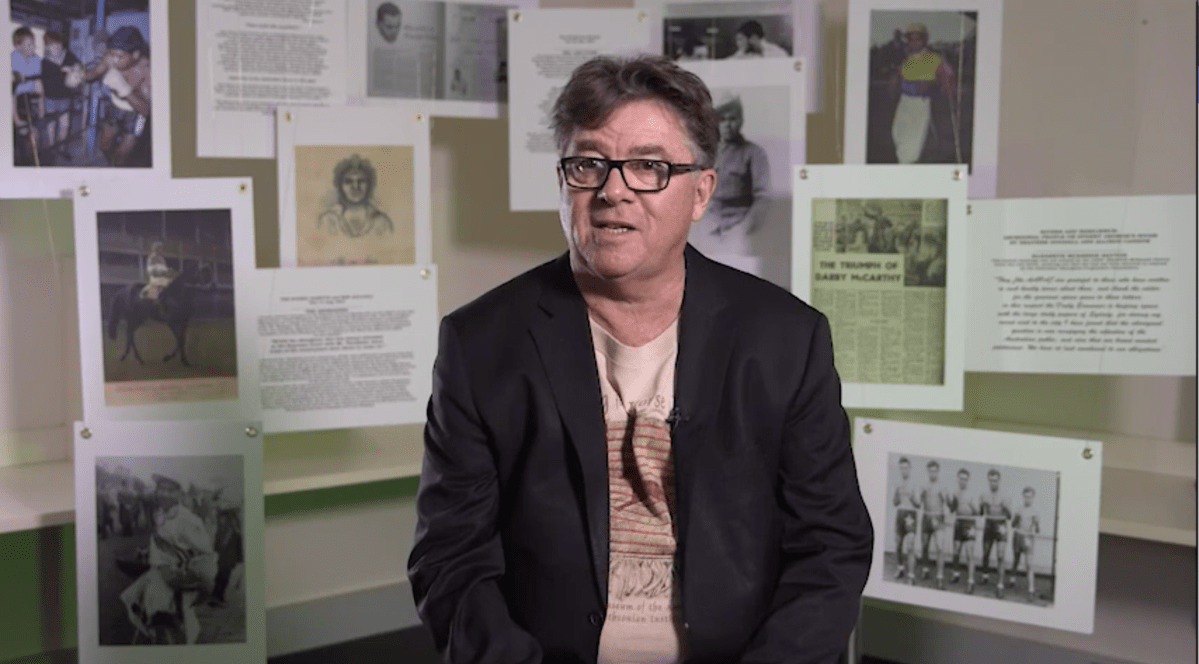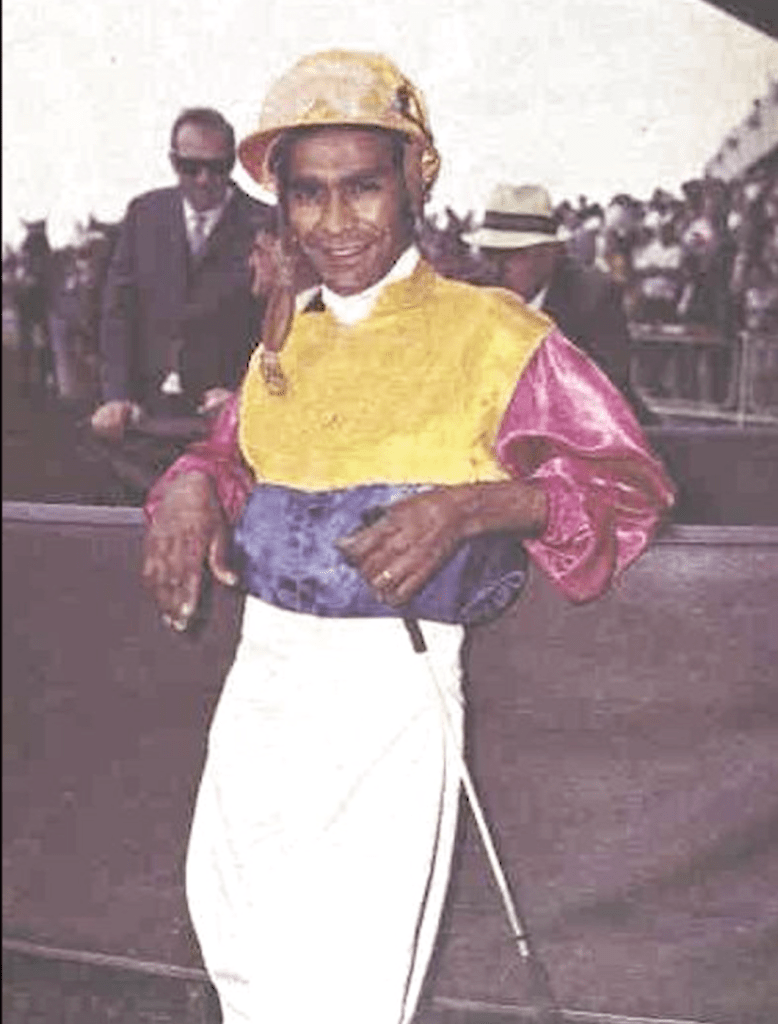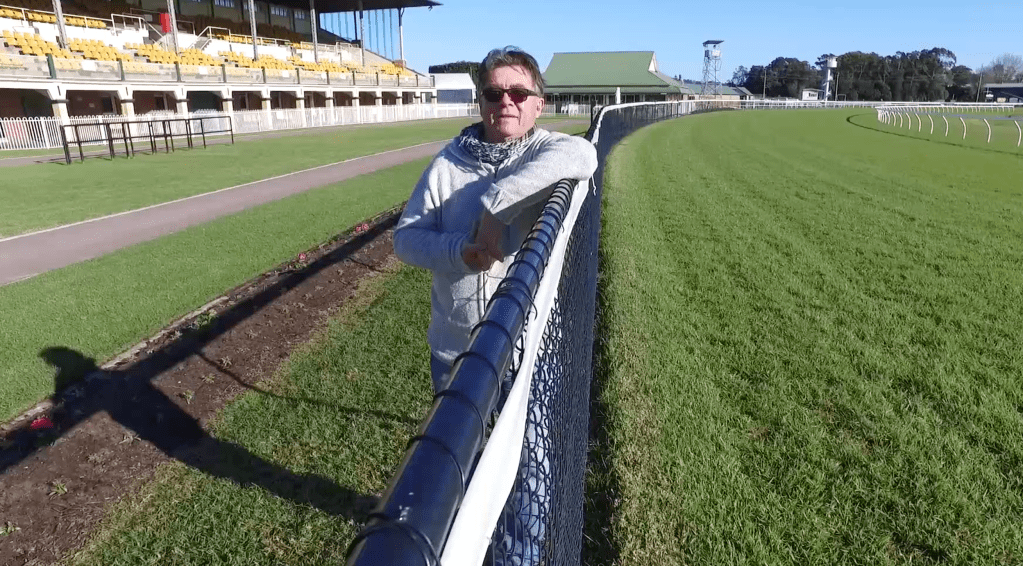Aboriginal and Torres Strait Islanders are warned that the films and website contains images of people who have died.
Revealing the missing, the forgotten, the denied, the overlooked and erased parts of Australian history.
Episode 1 – Duration 15:46
JOCKEYS – Darby McCarthy and Mervyn Maynard
Both Mervyn Maynard and Darby McCarthy were blessed with the riding skill and beautiful soft hands to encourage horses to ‘run like the wind’. They were in partnership with the animals they rode and as Darby reflected to me some years back ‘it was all due to the beautiful horse’s mate’.
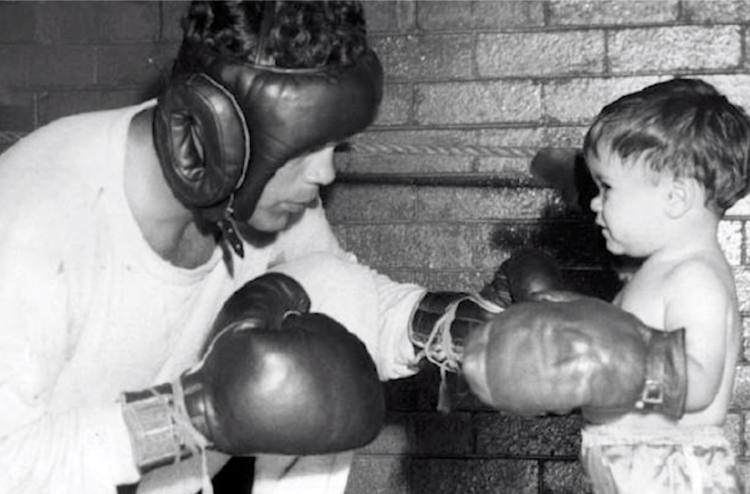
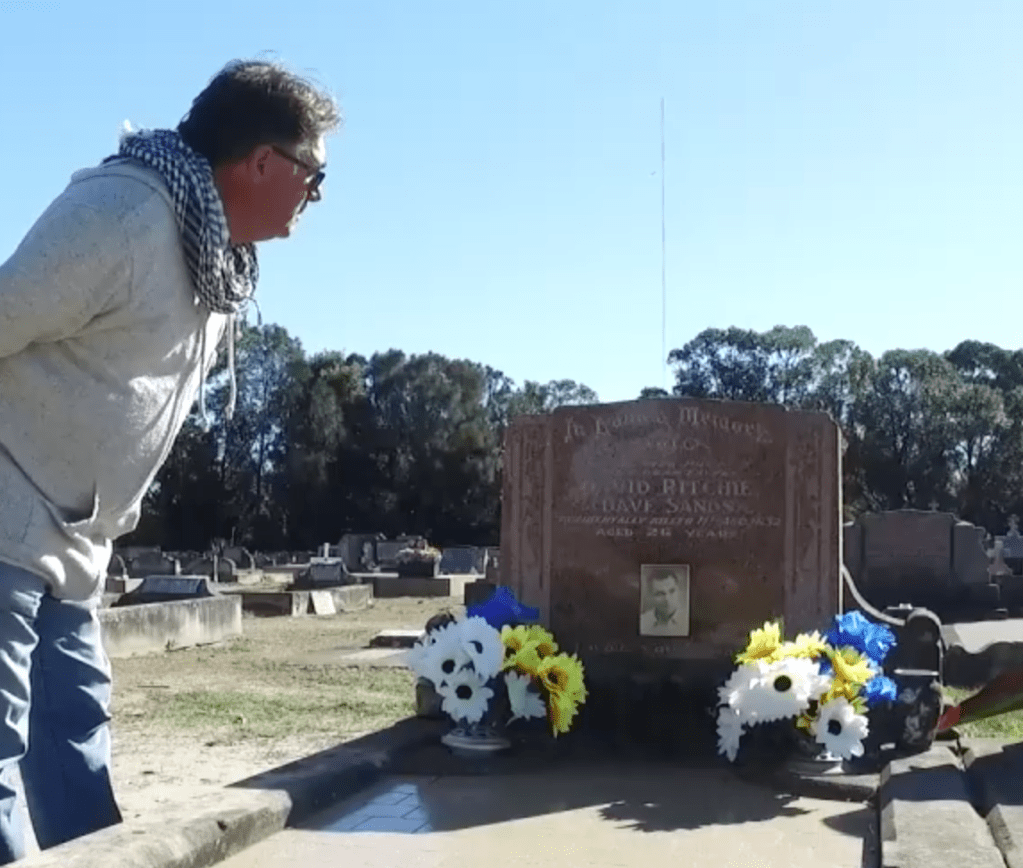
Dave Sands and Lionel Rose are regarded amongst the greatest Australian boxers of all time.
Episode 2 – Duration 13:45
BOXERS – Dave Sands and Lionel Rose
Aboriginal people and access to sport in this country reveals a troubled past. Whilst across the past thirty odd years both the AFL and NRL have opened their doors to Aboriginal participation in the past it was only a very few Aboriginal players that managed to break through these very restrictive and inhospitable spaces. Boxing on the other hand was the sport where Aboriginal fighters got their chance. All the way back to Jerry Jerome and the likes of Ron Richards Aboriginal fighters were amongst the countries greatest. Amazingly over 15% of all Australian champions were calculated to be Aboriginal. When we think of great Aboriginal fighters two certainly come to mind Dave Sands and Lionel Rose.
Episode 3 – Duration 12:27
LINGUISTS – Biraban and Threlkeld
Biraban, also known as John M’Gill, was a leader of the people known today as the Awabakal. Biraban translates as the “eaglehawk”. He was a gifted guide, tracker, teacher, singer, dancer and interpreter. He died on the 14 April 1846. Reverend L.E. Threlkeld with a linguistic background and interest set up the London Missionary Societies mission to Aboriginal people on the shores of Lake Macquarie during the years 1820-1841.
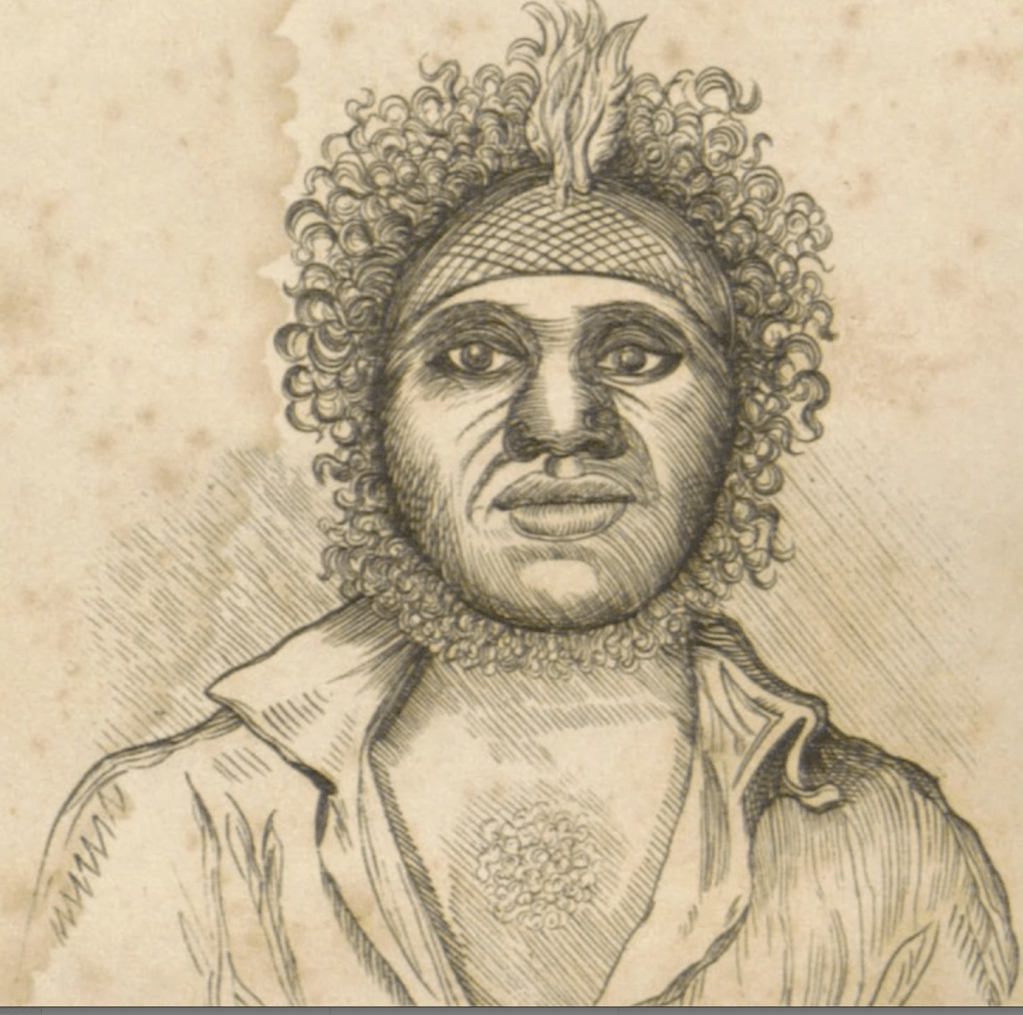
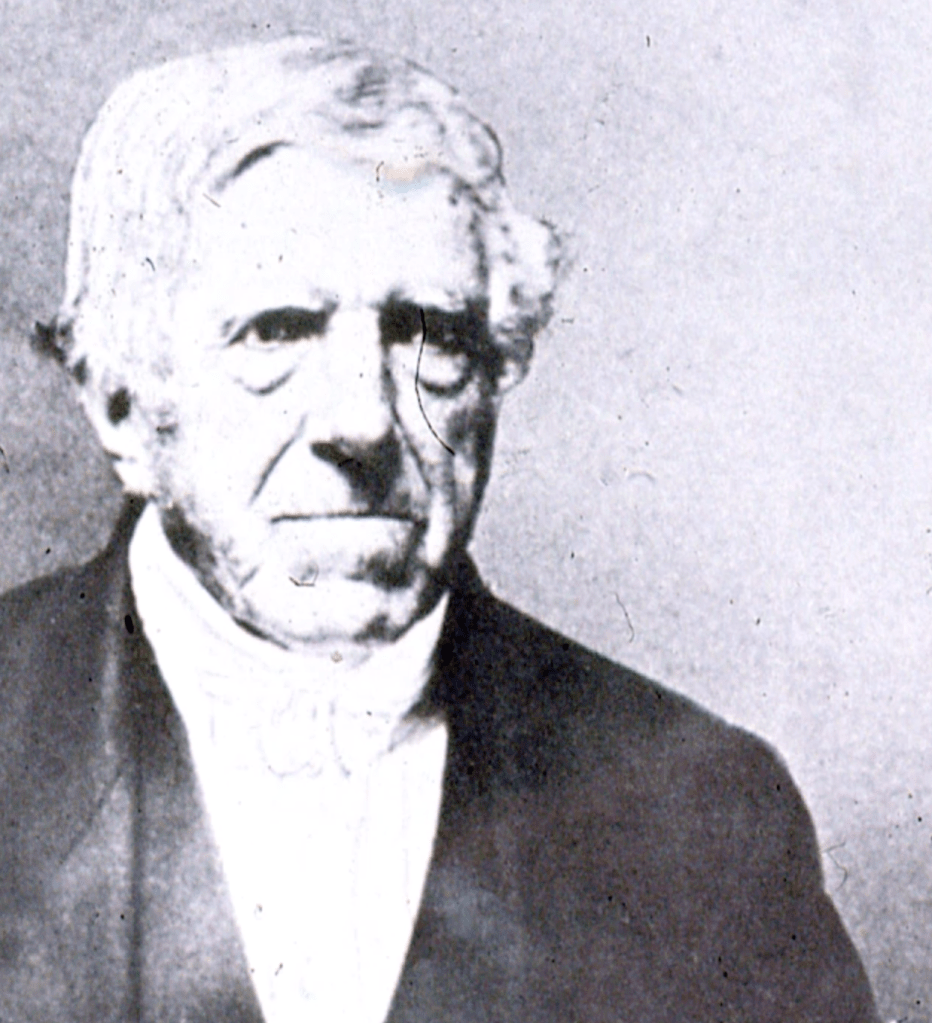
Threlkeld would be a great supporter and campaigner for Aboriginal people and his partnership with Biraban would produce the greatest south-east coast Aboriginal cultural collection of knowledge in existence.
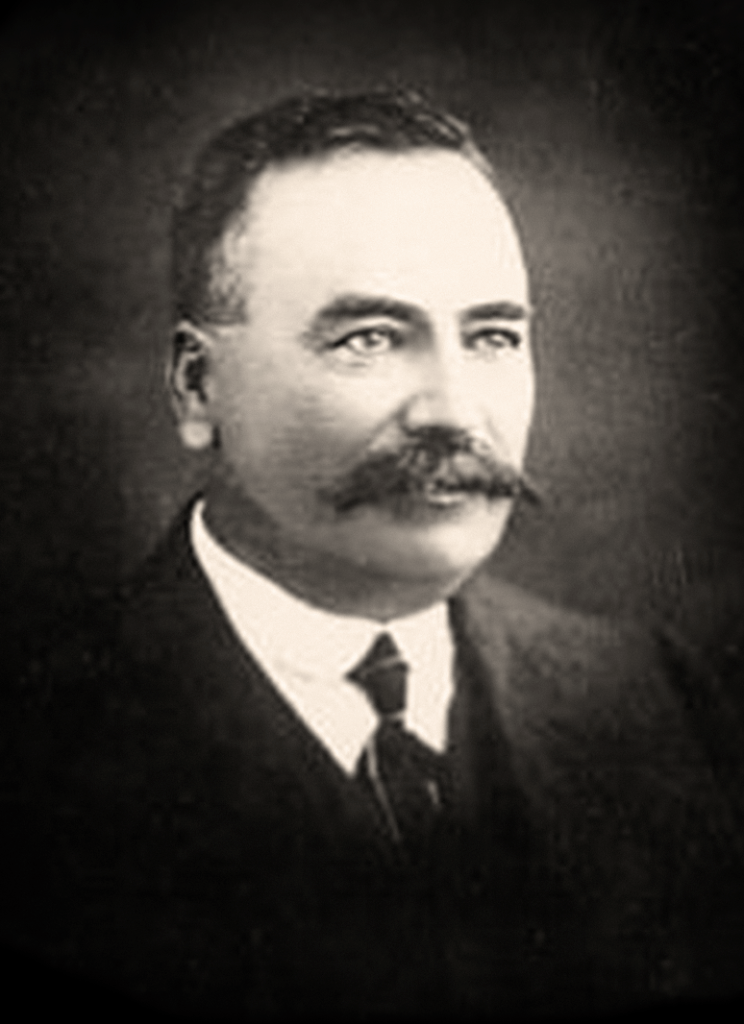
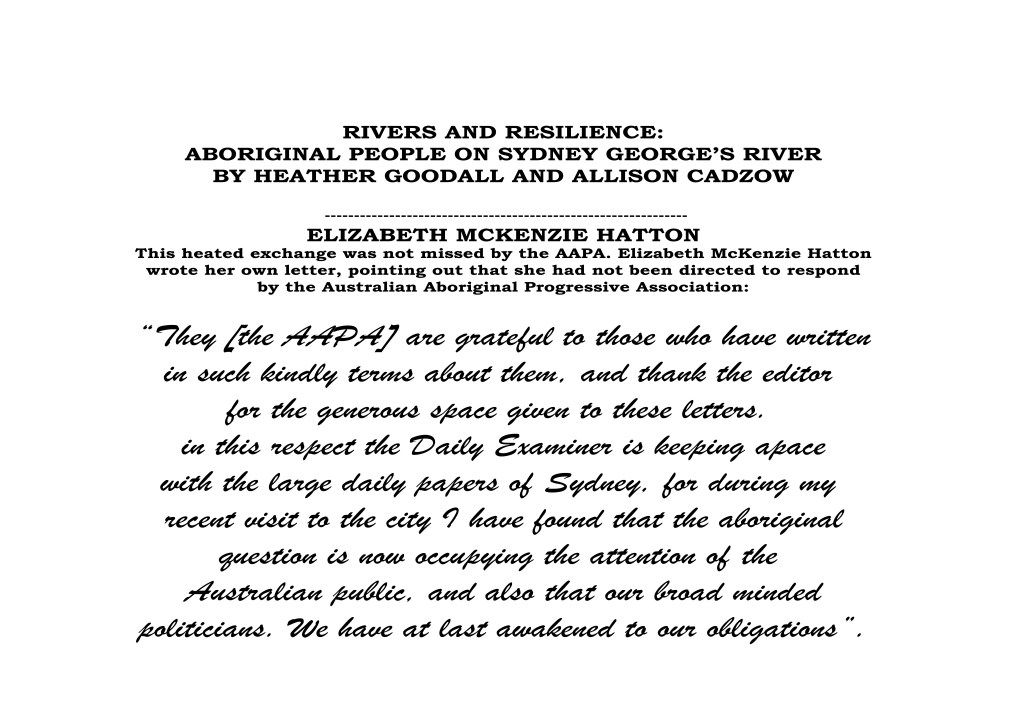
Known to Aboriginal people as “Mrs. Mac” she was one of the great campaigners and supporters of Aboriginal rights. John J. Moloney was a man and thinker decades ahead of his time.
Episode 4 – Duration
NATIONALISTS – Elizabeth McKenzie-Hatton and John J. Moloney
Elizabeth McKenzie Hatton a white missionary during the 1920s she would align herself with the prominent Aboriginal leadership of the Australian Aboriginal Progressive Association Fred Maynard, Sid Ridgeway, Tom Lacey and Dick Johnson. Hatton would be a prominent writer in the press demanding Aboriginal rights to land, protecting their children, that Aboriginal people should be placed in charge of Aboriginal affairs and defending a distinct Aboriginal cultural identity. John J Moloney was the editor of the Newcastle newspaper the Voice of the North and would provide the Aboriginal leaders with constant editorial space in his paper. He was a fierce nationalist and a member of the Australian Natives Association who during the 1920s-lent support to Aboriginal rights.
Episode 5 – Duration 12:27
BLACK DIGGER – Douglas Grant
Douglas Grant is one of the better known Aboriginal servicemen of the First World War. His life was the stuff a Hollywood film director could only dream of. As a young ‘full-blood’ baby he was ‘saved’ by the chief taxidermist of the Australian Museum in Sydney Robert Grant after his family were ‘killed by a punitive expedition of white settlers and native police.
Douglas was raised on equal footing with Robert Grant’s other children living in Annandale, received a good education and later qualified as a draughtsman and woolclasser. During the First World War, he followed several of his workmates and volunteered for the army in 1915. After enlistment, he sat the ‘Sergeants examination successfully, his previous training with the Cadet movement being of a great advantage’.
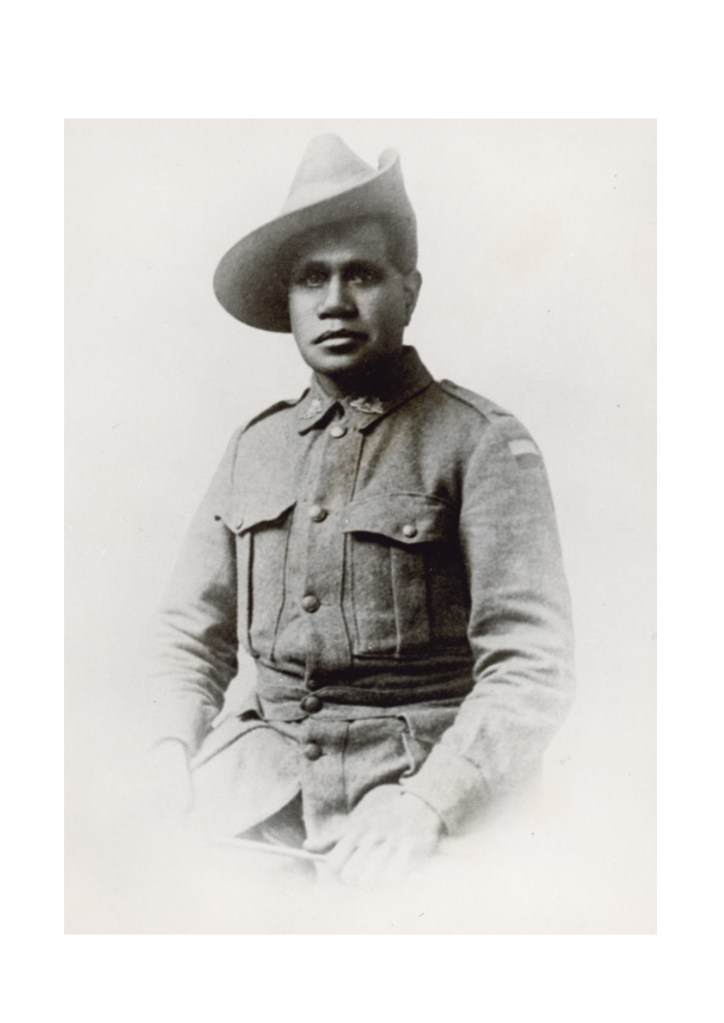
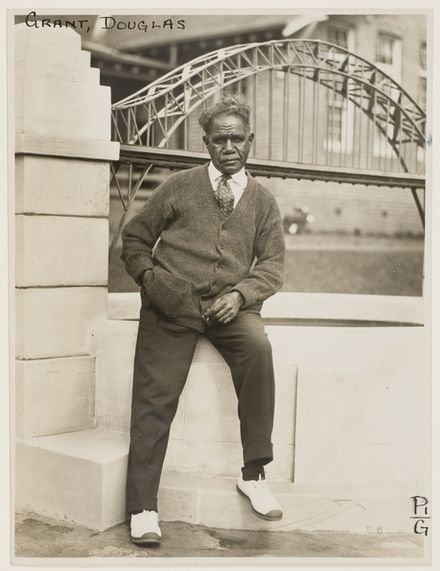
There was no colour bar in the trenches
Episode 6 – Duration
POLITICAL WARRIOR – Jane Duren
Jane Duren an Aboriginal Yuin woman from Moruya on the South Coast of New South Wales remains as one of the great forgotten Aboriginal political patriots. Duren was a very prominent member of the Australian Aboriginal Progressive Association (AAPA). Her record and memory largely is tied with two very significant events and moments. There is much written about William Cooper’s famous 1937 letter to the King, which sadly was never sent. Jane Duren on the other hand in 1926 did write a letter to the ruling monarch. Duren’s letter did reach Buckingham Palace and was returned to Australia postmarked from the Palace.
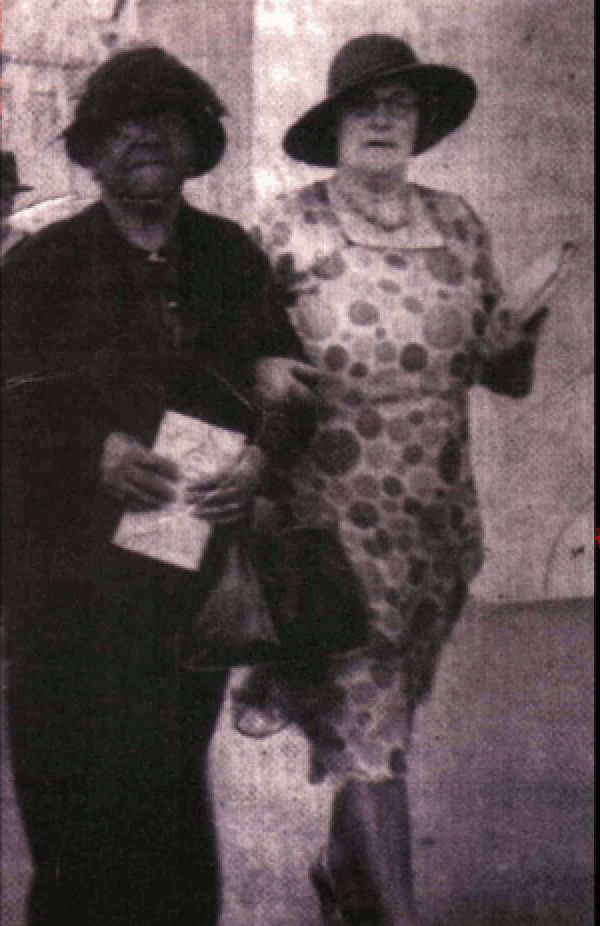
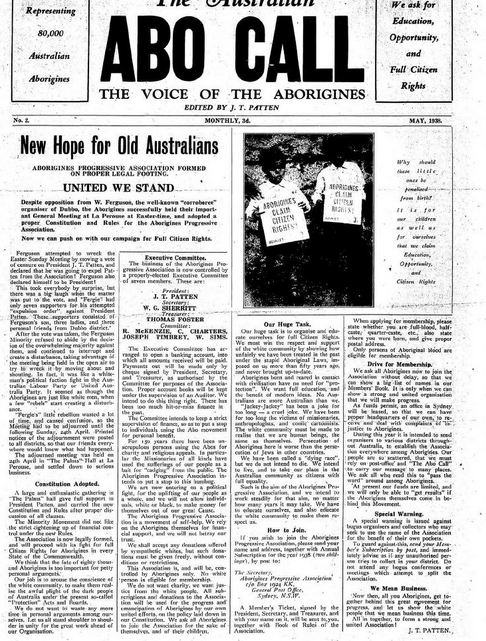
Duren Deserves to be recognised as an early campaigner for civil rights and children’s rights
